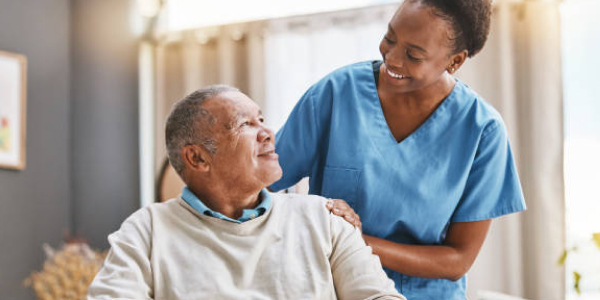Basic self-care
Even devoted caregivers experience stress and feeling overwhelmed at times. Nurture yourself and release tension by:
- Eating properly and getting enough sleep.
- Exercising regularly, even if it means just taking a walk around the block.
- Making time for a warm bath, massage, or other relaxing activity.
- Journaling to help you process your emotions privately.
- Keeping in touch with your social support network of family and friends.
- Accepting help from family, friends, or neighbors who offer to visit with your loved one, cook, clean, shop, or take on other household tasks.
Additional support
Look beyond your immediate circle to find additional caregiving support.
If you are part of a faith community, there may be a network of volunteers that can help. Or ask your hospice provider to arrange for a volunteer to give you short, regular breaks from caregiving.
If finances permit, consider hiring help from an agency that provides caregiving services. Such help usually is not covered by Medicare, Medicaid, or private insurance, but it may be part of a long-term care insurance or VA plan.
Before paying out of pocket for supplemental caregiving, talk with the hospice team about the possibility of hiring a licensed practical nurse (LPN), certified nursing assistant (CNA), or death doula.
To support your mental wellbeing, consider activities that allow you to openly express your thoughts and feelings about caregiving. It can be comforting to know that others face similar challenges and are there to support you.
You may want to:
- Read books, articles, or reputable websites about caregiving.
- Join a caregiver support group. Many hospices host groups that meet by phone or online, so you can remain at home with your loved one.
- Seek help from a professional counselor in a group or individual setting.
Coping with grief
As a caregiver, you may be susceptible to two types of grief: “anticipatory grief,” experienced during your loved one’s illness, and the grief that you feel after your loved one dies.
Many caregivers feel anticipatory grief as they observe the physical, psychological, and cognitive losses associated with terminal illness. Those who care for people with Alzheimer’s and other dementias may find it especially painful to watch their loved one decline, particularly if the patient no longer recognizes the caregiver or their relationship.
Caregivers also experience many emotions after the loved one’s death. In addition to losing a friend or family member, you may feel a loss of purpose once the caregiving duties are done.


